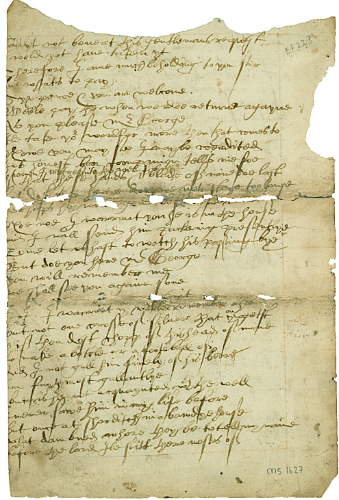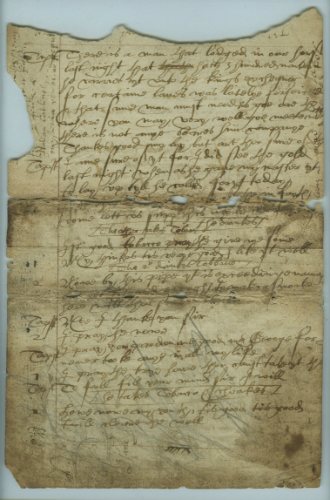Play of Thieves and a Gullible Tapster
Anon. (c.1605?)
NB. "Play of Thieves and a Gullible Tapster" is a recent assignation (from Wiggins 1470) for this untitled play. The name is used here for convenience.
Historical Records
A fragment preserved in the binding of a copy of the 1586 Geneva edition of Homer's Odyssey was found by Patrick King in 1988. It is now MS 1627 in the Schøyen Collection in Oslo:

|

|
| Schøyen MS 1627, © The Schøyen Collection, Oslo and London | Schøyen MS 1627, © The Schøyen Collection, Oslo and London |
Theatrical Provenance
Unknown.
Probable Genre(s)
History? (see Possible Narrative and Dramatic Sources or Analogues below)
Possible Narrative and Dramatic Sources or Analogues
The 'Tapster fragment' imitates the tavern scenes from Shakespeare's 1 Henry IV: it features a tapster speaking to two thieves (one named George) about a man carrying 300 marks to the king's exchequer.
References to the Play
Information welcome.
Critical Commentary
Freeman
See also Wiggins 1470, who assigns a general date range of 1600-1620 and for Catalogue purposes places the play within c.1605.
For What It's Worth
Information welcome.
Works Cited
Site created and maintained by David McInnis, University of Melbourne; updated 19 May 2016.